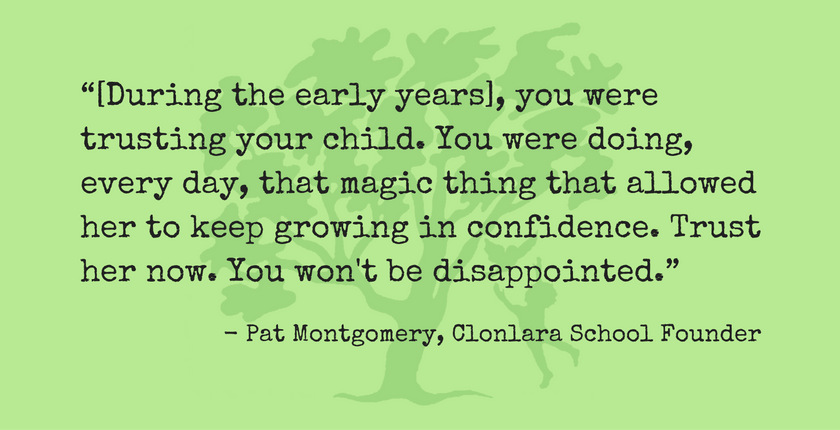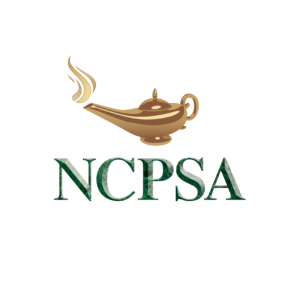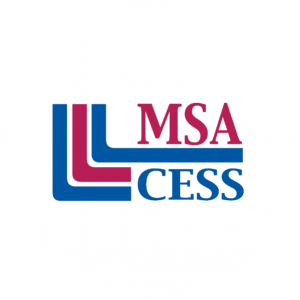By Pat Montgomery, Founder
Editor’s Note: From time to time, we’ll “look back” through our archives to share articles that are as relevant today as when they were printed. In this piece that was originally published in the Fall 2012 issue of The Learning Edge, Clonlara’s founder offers reassurance to parents who are thinking about homeschooling and other alternatives to traditional school.
John Holt had a classic response to the apprehensive questions parents often posed: can I teach my own child? He reminded them that they could design houses and buildings, repair complex machines, write computer programs, give counsel on the law, drive heavy machinery, etc., so why couldn’t they teach youngsters? I hasten to add that the fact that most of the questioners weren’t trained as teachers was a definite plus because that can often get in the way of allowing a child to pursue her own interests without undue adult interference.
During the early years of starting Clonlara School, I was forced to recognize the fact that I had no prior experience in founding a school, in planning, and in administration, let alone founding a school that didn’t operate in the way conventional schools did. The real key for my learning the ropes in unschooling was the freedom that the school setting allowed me. Here I was not needing to play a role as “teacher” standing in front of a class talking at them. I could step back and observe what they chose to do, individually and collectively. I could research their behaviors this way. I could mull over on the spot or for days afterwards what their words and actions told me about them as learners. With that priceless information, I was able to assume my job of providing an environment that catered to their needs and interests and abilities (as far as I possibly could).
In my estimation, that’s one of the finest treasures of being a home educating parent—not having to assume a role as Speaker of the House. Up until a child’s 5th birthday (kindergarten age) you, a parent, have provided an environment that promoted your child’s growth and development. What do you see when you look at him? Is she happy in her own skin? If the answer is yes, then why change the plan? Why send him off to a place where the accent is on adult-centered activities and goals?
If your approach has produced a bright-eyed, curious person, why switch? How did you know what your child’s needs and abilities were at each stage of his early years? You probably listened to other parents and read magazines and books and tried things out, and most of all, watched for the clues that she/he gave you that said, in effect, I can do this myself.
Will he stop giving you those clues when the issue is reading words or counting numbers? Will she stop being interested in figuring out what makes things tick?
It probably never occurred to you before that in all of that time, you were trusting your child. You were doing, every day, that magic thing that allowed her to keep growing in confidence. Trust her now. You won’t be disappointed.
And keep doing what you are doing in terms of leaning on others for guidance—your Clonlara advisor, and Clonlara’s written support and inspiration in its various other forms. Learn from those who have walked in your moccasins. Take advantage of the freedom you have to step back and observe and to put your discoveries about how your child learns to their best use.
What advice would you give to parents who are wondering if they can teach their own child? We’d love to hear your thoughts.








One Response